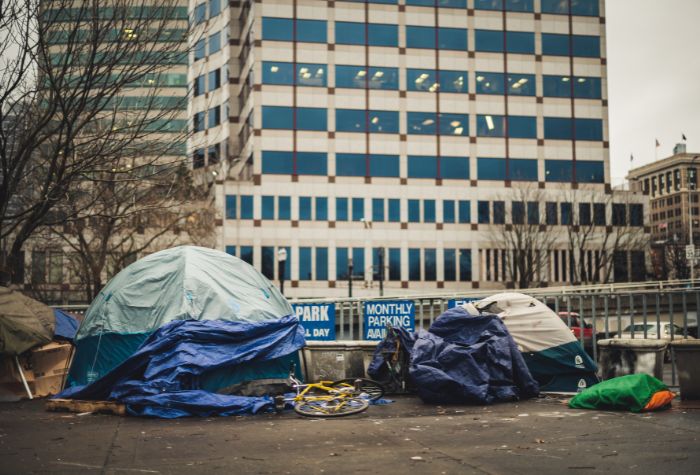The term self-care is plastered across today’s internet and media. The message relayed is to engage in self-care to take care of yourself – if you don’t do it, nobody else will. The ‘take care of you’ part of this, however, typically focuses on giving love and attention to your body, mind, and soul through practices such as decluttering the house, unplugging from social media, reading a book, and creating a home spa of essential oils to prompt relaxation and mental well-being.
These are great ways for people to enjoy their lives, but it speaks of luxury. It leaves out a large chunk of people – marginalized populations who live life with monumental barriers to basic needs.
It is critical at this point and has been for all too long, to ensure that we give new meaning to self-care and that each individual and entire communities have access to the basics that are crucial to maintaining well-being.
Hierarchy of Needs
Most of us agree that well-being can be defined as a state of being comfortable, healthy, or happy. When we unpack the needs for people to achieve a state of well-being, we can thank Abraham Maslow, a scholar who created and named his theory “hierarchy of needs.”
“The story of the human race is the story of men and women selling themselves short.” – Abraham Maslow
Maslow broke his hierarchy of needs down into levels. With the most basic needs sitting at the foundational level. These essential needs must be met before obtaining the psychological needs, and the psychological needs must be met before self-fulfillment needs can be met.
Starting at the base (1), here are Maslow’s hierarchy of needs:
Basic Needs
- Physiological needs – food, water, warmth, rest
- Safety needs – security, safety
Psychological Needs
- Belongingness & love needs – intimate relationships, friends, trust
- Esteem needs – confidence, achievement, success
Self-fulfillment Needs
- Self-actualization – achieve one’s full potential
Self-Care is about Well-being (Meeting Basic Needs)
It is clear that the meeting of each of our basic needs, starting at the base with physiological needs, is fundamentally necessary for our well-being. We really do not need a numbered chart to show us this, but Maslow’s hierarchy of needs gives us a reference point that helps us solidify what we know. Those that are in marginalized populations who live with barriers to basic functions and needs in life struggle to get from the base level, much less from one higher-up level to another.
These barriers must be overcome. Inherently, we must redefine self-care. It isn’t about engaging in society’s interpretation of self-care (through means that depict luxury), rather, it must be defined as taking care of oneself, including the basics (hygiene, eating well, exercising, and getting enough sleep).
As a part of self-care, as a whole population, it is about supporting and providing the most basic physiological, safety, belongingness, and esteem needs (mental health care) for all populations. As we redefine this, we must focus on self-care as both an individual effort and community care.
How We are Working to Address Mental Health Care Inequity
WTCSB staff are trained in evidence-based practice models that have been found to be more effective in multicultural settings and to increase equity.
We recognize that minority groups are not accessing health care in America for many reasons, such as systematic racism, bias, and discrimination in treatment settings. Members of minority racial groups also have limited resources, making it difficult to afford health care. People in some communities also face stigma and cultural factors that create barriers to seeking help for mental illnesses.
We have created the Diversity, Equity, and Inclusion Committee to help WTCSB stay accountable and to ensure that we’re meeting the needs of different racial, ethnic and cultural groups. We’ve also hired a human resources specialist whose role is to ensure that staff and leadership reflect the community we serve, so we can give those who have historically been silenced a voice.
Forward, Together
Let’s rethink, and subsequently, redefine self-care together, and not only protect our own well-being, but make it a multicultural community process that works despite systematic disadvantages and the impact of intergenerational trauma, and despite today’s imperfect health care system.
If you need help with mental health, substance abuse, or an intellectual or developmental disability concern, make an appointment for same-day access online or call us at 757-758-5106.
If you or someone you know is experiencing a mental health or substance abuse crisis, you can call our 24/7 emergency line at 757-925-2484 to talk to someone right away.






